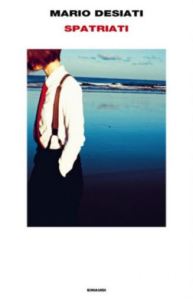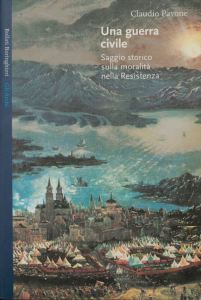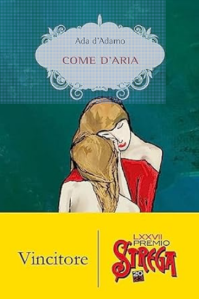Thanks to the sterling efforts of colleagues in Collections and Academic Liaison (CAL), a hitherto underutilised section of the Royal Commonwealth Society (RCS) library has recently been catalogued. 2252 titles running to almost 79 metres of shelving under the ‘Foreign colonies’ classification have now been added to iDiscover. Previously these titles were only discoverable through a labyrinthine card catalogue situated in the Rare Books Reading Room at Cambridge University Library; potential users had to know of the existence of this collection and had to physically visit the UL to access the card catalogue.
Continue reading “Cataloguing of the Royal Commonwealth Society Library’s ‘Foreign colonies’ section”Category: Italian
Italian literary prizewinners 2023
With the onset of autumn we take a look at the Italian literary prizes awarded during 2023.
The Bagutta prize is by tradition the first of the annual literary prizes to be awarded in any calendar year. This year, the winner was Marco Missiroli for his novel Avere tutto. Published by Einaudi in 2022, the UL copy stands at C219.c.2170.
Strega prize 2023:
This was awarded to Ada D’Adamo for her autobiographical novel Come d’Aria. Published in Rome by Elliot in 2023, the UL copy stands at C207.d.3589. Continue reading “Italian literary prizewinners 2023”
Frederick Justen and ‘Il Gallo di Alfredo il Piccolo’: An intriguing Italian print in Cambridge UL’s 1870-71 collection
Frederick Justen (1832-1906), working at Soho-based Dulau & Co. booksellers, produced different sets of caricatures from the Franco-Prussian and the Commune (1870-71), including some at Cambridge University Library, at the British Library and Heidelberg University Library. A close inspection of one of the prints in the sixth and final volume of Cambridge University Library’s 1870/71 caricatures (KF.3.9-14) shows the challenges raised by the identification of the subjects of the caricatures and suggests that Justen updated the collection as late as October 1878. Digitised in late 2020 and the subject of an online display, some of these prints are currently exhibited in the Modern and Medieval Languages and Linguistics Library. One of the particularly interesting facets of this collection is the existence of similar sets, all produced by Justen. Despite sharing the same red binding, title page and 1872 article from the Atheneum advertising the sets, the various Justen collections are not identical. This diversity provides ample room for investigation, and one entry point is the case of an Italian print in Cambridge’s sixth volume entitled ‘Il Gallo di Alfredo il Piccolo’, which appears to have been printed much later than any other print found in this compilation.

Italian literary prizewinners 2022
 As the year 2022 draws to a close we take a look at the Italian literary prizes awarded during the course of the year.
As the year 2022 draws to a close we take a look at the Italian literary prizes awarded during the course of the year.
Strega prize 2022:
This was awarded to Mario Desiati for his novel Spatriati. This psychological novel, or coming-of-age story, can be found in the UL at C217.c.3730.
Bagutta prize 2022:
The Bagutta prize is not restricted to any particular literary genre. This year it was awarded to Benedetta Craveri for her work La contessa, a biography of Virginia Verasis di Castiglione, a cousin of Count Camillo di Cavour. Continue reading “Italian literary prizewinners 2022”
Claudio Pavone: subject of the forthcoming relaunched ISLG Annual Lecture
 It is with great pleasure that the Italian Studies Library Group has announced that it will resume its series of annual lectures with a lecture at the Italian Cultural Institute on 10 March. The subject will be Claudio Pavone (1920-2016), an influential historian of the Italian Resistance. It was Pavone’s seminal study Una guerra civile, published by Bollati Boringhieri in 1991 (539:1.c.737.41), that changed the way Italian historians saw the Resistance against Fascism between 1943 and 1945. Until his work appeared, referring to the Resistance struggle in northern Italy as a ‘civil war’ was, if anything, seen as a sign of far-right sympathies and nostalgia for the days of Mussolini. In some ways, also, that interpretation of the struggle was an unwelcome reminder of the level of support Fascism had enjoyed among Italians. Continue reading “Claudio Pavone: subject of the forthcoming relaunched ISLG Annual Lecture”
It is with great pleasure that the Italian Studies Library Group has announced that it will resume its series of annual lectures with a lecture at the Italian Cultural Institute on 10 March. The subject will be Claudio Pavone (1920-2016), an influential historian of the Italian Resistance. It was Pavone’s seminal study Una guerra civile, published by Bollati Boringhieri in 1991 (539:1.c.737.41), that changed the way Italian historians saw the Resistance against Fascism between 1943 and 1945. Until his work appeared, referring to the Resistance struggle in northern Italy as a ‘civil war’ was, if anything, seen as a sign of far-right sympathies and nostalgia for the days of Mussolini. In some ways, also, that interpretation of the struggle was an unwelcome reminder of the level of support Fascism had enjoyed among Italians. Continue reading “Claudio Pavone: subject of the forthcoming relaunched ISLG Annual Lecture”
Italian literary prizewinners 2021
It is autumn and time to take stock of the major literary prizes awarded in Italy this past year.
The Strega prize for 2021 was awarded to Emanuele Trevi for his novel Due vite (held in the UL, C206.d.4499).
The Bancarella prize was awarded to Ema Stokholma for her autobiographical novel Per il mio bene (held in the UL, C206.d.7547).
The Campiello prize was awarded to Giulio Caminito for his novel L’acqua del lago non è mai dolce (held in the UL, C206.d.7514).
Journal of Italian Cinema and Media Studies
![]() Electronic Collection Management
Electronic Collection Management
New on ejournals@cambridge A-Z : Journal of Italian Cinema and Media Studies
Now available to the University of Cambridge electronically from volume 1 (2012) to present.
From the Ingenta Connect website for the journal:
“The Journal of Italian Cinema & Media Studies (JICMS) is a fully peer reviewed English language journal, which explores Italian cinema and media as sites of crossing, allowing critical discussion of the work of filmmakers, artists in the film industry and media professionals. The journal intends to revive a critical discussion on the auteurs, celebrate new directors and accented cinema, and examine Italy as a geo-cultural locus for contemporary debate on translocal cinema.”
Access Journal of Italian Cinema and Media Studies via the Journal Search or from the iDiscover record.
Image credit: by Tookapic on Pexels: https://www.pexels.com/photo/night-television-tv-video-8158/
Revisiting Rosmini

Receiving and cataloguing a couple of new volumes of a set that had begun over half a century ago, I decided to look again at the way the set had been catalogued. The Opere edite e inedite di Antonio Rosmini (Rome-Stresa: Città Nuova Editrice, 1966–) had been placed together on the open shelves, but, as was often the case before the era of online cataloguing, with only a single record for the entire set, leaving readers to find anything they wanted by browsing the actual volumes. Realising that we were one of the few libraries in this country to be taking the complete set, and seeing how vast it is becoming (now projected to be complete in 80 volumes), I thought it was time to grapple with the task of recataloguing all the individual volumes received so far. As a result these works are now far more accessible to the reader, with a record in iDiscover for each volume. They stand on South Wing 4, at 184.c.97.1383-. Continue reading “Revisiting Rosmini”
Covid-19 in literature
Telling stories has long been a way for humans to make sense of life’s many events. Little more than a year has passed since the beginning of the first UK lockdown, and we already know that huge amounts have been published about the current pandemic, chiefly online and prominently in the sciences and social sciences. In this blog post we present some of the stories authors are telling about and around COVID-19.
In her book Viral Modernism: the Influenza Pandemic and interwar literature, Elizabeth Outka reveals that, even if the 1918-1919 pandemic ‘faded from historical and cultural memory […], [and was] overshadowed by World War One and the turmoil of the interwar period’, it in fact ‘shaped canonical works of fiction and poetry’, to the extent of framing modernism with its ‘hidden but widespread presence’.
Continue reading “Covid-19 in literature”






